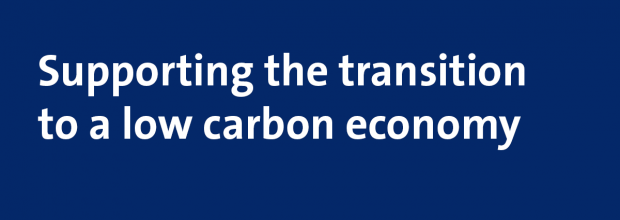
Today the CMA has published its draft 2021/22 annual plan for consultation. It sets our proposed overall direction and main themes for the coming year. We look forward to receiving your views.
There have been a number of developments since our last Promoting Competition bulletin in July this year.
With the continued impact of the coronavirus (COVID-19) pandemic, the CMA’s role in fostering competition and in building consumer trust and confidence is ever more important. We are continuing to work hard to protect consumers and to ensure markets work in their favour.
We are also preparing to take on new responsibilities at the end of the EU Exit Transition Period and have recently published guidance on the functions of the CMA post-Transition.
Protecting consumers
We have continued to take tough action to protect consumers, particularly vulnerable consumers.
This includes carrying on our work in response to the coronavirus pandemic. We have worked extensively with other enforcers to ensure consistency of approach in tackling rapidly evolving issues. We updated our statement on coronavirus (COVID-19), consumer contracts, cancellation and refunds in August, which sets out the CMA’s views as to how the law operates, to help consumers understand their rights and to help businesses treat their customers fairly. We also progressed our work in relation to the early years, weddings and package holiday sectors.
In the early years sector, the CMA published an open letter and more detailed advice to nurseries and early years providers, to help them understand how consumer protection law applies to the arrangements they have with consumers (parents) during the coronavirus pandemic, and highlighting practices it considers unfair, contrary to consumer law.
In relation to package holiday businesses, the CMA published an open letter to businesses highlighting concerns and setting out what it expects businesses to do. We are also taking forward a number of cases in this area. On 16 September we announced that TUI UK had given undertakings that customers waiting for refunds for holidays that were cancelled due the pandemic would receive them by the end of September. On 23 October, we announced undertakings from Virgin Holidays. On 1 December, we announced that Lastminute.com had committed to refund over £7 million for cancelled holidays.
The CMA also published further advice on cancellations and refunds in the light of the pandemic’s impact on weddings to help consumers understand their rights and businesses to treat their customers fairly. This was supplemented by an open letter to providers (with some contacted directly) to remind them of their responsibilities under consumer protection law. We also received undertaking from Bijou Weddings Group to provide fairer refunds to couples whose weddings could not go ahead as a result of the ongoing pandemic. At the end of November, we issued new warnings to firms over concerns that couples are still not receiving fair refunds for weddings that could not go ahead during the pandemic.
We published a further update on tackling the ‘loyalty penalty’ (which refers to longstanding customers paying more than new customers for goods and services). We welcome the progress made, with Ofcom and the FCA introducing interventions to help tackle the loyalty penalty charges, most recently in broadband and general insurance. We will continue to work with Government and regulators on this important issue, including exploring how our powers can be strengthened and consumer law clarified further, to ensure we can take action more effectively to help protect consumers from this and other exploitative problems. We are also progressing investigations in two sectors, online video gaming and anti-virus software, that will address issues closely connected with loyalty penalties.
As part of our work in the online secondary tickets market and following CMA action, StubHub addressed concerns raised by the CMA about the information it provides for tickets on sale via its UK website.
In October, the CMA secured more than £1 million in refunds for those NHS funded residents at Care UK’s premium care homes who paid an unfair additional fee towards essential care. Care UK has also formally committed to stop charging this additional fee to current and future residents at its homes.
We also published draft guidance to help fertility clinics understand and comply with their obligations under consumer law. The CMA invites interested parties to respond to the consultation no later than 5 pm on 5 January 2021.
In relation to the review of the Atlantic Joint Business Agreement between British Airways and American Airlines, the CMA issued an interim measures decision in September 2020, effectively extending the previous Commission commitments for another three years primarily as a result of the impact of the coronavirus pandemic on the airline sector.
We also took swift action in our bipolar drug investigation. Following the opening of our investigation in October this year, the CMA is now consulting on formal commitments offered by Essential Pharma to keep a key bipolar drug (Priadel) on the market, and ensure it is affordable to the NHS.
Improving trust in markets
We are continuing our market investigation into the funerals market. In August, the CMA published its provisional conclusions. The CMA has provisionally decided that, in the short term, it will require all funeral directors and crematoria to provide customers with information on, and the prices of, the various services and packages they offer. In the light of the evolving situation regarding coronavirus, a new statutory deadline was set to 27 March 2021.
In September, the CMA launched enforcement action involving 4 leading housing developers it believes may have broken consumer protection law in relation to leasehold homes. As part of an investigation into the leasehold market, the CMA uncovered troubling evidence of potentially unfair terms concerning ground rents in leasehold contracts and potential mis-selling. It is concerned that leasehold homeowners may have been unfairly treated and that buyers may have been misled by developers.
Having ramped up our use of the director disqualification powers in late 2016, we have now secured 20 disqualifications of company directors arising out of CMA investigations (one company director was disqualified by the Court in 2017, under the criminal cartel offence). In August this year, the CMA secured a legally binding disqualification undertaking from a director whose company exchanged commercially sensitive information about prices for Nortriptyline Tablets.
We have continued to take tough action against the harmful effects of mergers. In September this year, the CMA decided that Hunter Douglas, owner of online blinds retailer Blinds2Go, must sell the majority of its shares in 247 to protect competition and prevent higher prices. In November, the CMA ordered FNZ to sell GBST after finding that their completed merger could lead to a reduction in the quality of service and higher prices in the supply of technology to retail investment platforms.
Following an in-depth investigation, the CMA cleared the proposed acquisition by Amazon of certain rights and a minority shareholding in Deliveroo. The CMA ultimately found that this level of investment in Deliveroo would not substantially lessen competition in restaurant delivery and online convenience grocery delivery. However, if Amazon were to acquire a greater level of control over Deliveroo, this could trigger a further investigation by the CMA.
Our tough approach also means that some mergers were abandoned after we highlighted serious competition concerns, including online advertising supplier Taboola’s proposed acquisition of Outbrain and educational products supplier YPO’s proposed deal with Findel.
The CMA welcomed the Tribunal judgment in the Facebook and Giphy case, which endorsed the CMA’s cautious approach to assessing derogation requests to interim enforcement orders at an early stage in its investigation. We also continue to take strong enforcement action with regards to breaches of interim enforcement orders during our investigations and parties not responding appropriately to our requests for information. The CMA has imposed penalties on Amazon for the failure to provide, without reasonable excuse, complete responses to two sets of statutory information requests.
Promoting better outcomes for consumers online
We have welcomed the UK Government’s response to our online platforms and digital advertising market study, committing to introduce a new pro-competitive regulatory regime. The Government also outlined that a new Digital Markets Unit will be established within the CMA in 2021/22. The CMA’s Digital Markets Taskforce is due to advise government on the design of the new regulatory regime by the end of the year. It will then be for the government to take action and bring forward legislation to establish the regime.
The CMA secured undertakings from Facebook. It committed to do more to prevent hidden advertising being posted on its Instagram platform, signalling an important behaviour shift by a major platform.
In November, the CMA fined ComparetheMarket £17.9 million after it found that clauses used in the company’s contracts with home insurers breached competition law. ComparetheMarket, which has been the largest price comparison site for home insurance for several years, used clauses in its contracts that restricted home insurers from offering bigger discounts on competing websites, so limiting the bargains potentially available to consumers.
Supporting the transition to a low carbon economy
In line with the CMA’s commitment in its draft 2021/22 annual plan (and in the current plan) to support the transition to a low carbon economy, on 2 November 2020, we launched a project looking at suppliers’ use of environmentally friendly claims (so-called ‘green claims’). This involves engaging with a wide set of stakeholders to improve our understanding of the claims suppliers make about green/environmental benefits associated with their products and how consumers respond to such claims.
We are asking consumers, businesses and stakeholders to complete surveys (by 14 December) to help us with our work relating to misleading green claims. We plan to issue guidelines for businesses regarding the use of green claims and the provision of environmental information, with a view to preventing misleading claims which could erode consumers’ trust.
In addition, in December 2020, we launched a market study into electric vehicle charging in the UK, to make sure that this new and fast-growing sector works well for UK drivers. The Government has brought forward the ban of new petrol and diesel vehicles to 2030. This makes the switch to electric vehicles more imminent for UK drivers. The CMA is therefore taking a close look at the electric vehicle charging sector, which is crucial to the roll-out of electric vehicles, as part of its commitment on climate change.
Getting closer to consumers
In carrying out all of our work, we are seeking to get closer to consumers, as we set out at the beginning of 2020. We are committed to doing more to understand the issues facing consumers, in particular those who are vulnerable, for whatever reason; to explain our decision-making; and to be a more visible and vocal advocate for consumers.
The CMA is extending its outreach to people and businesses across the nations and regions of the UK, in order to deepen our understanding of issues affecting them that fall in the CMA’s remit.
On 30 November, the CMA issued a report on the state of competition in the UK. The report was commissioned by the Chancellor and the Business Secretary. Although much of the study uses comprehensive analysis covering the last 20 years, with the most recent data from 2018, the CMA has also started assessing early metrics of how the coronavirus has affected competition.
Setting our overall direction and main themes for the year ahead
Today we have launched the consultation on our draft 2021/22 annual plan.
In the past year, the CMA has had to reorient itself to protect consumers in the unprecedented circumstances of the coronavirus pandemic. This remains an extremely important area and, in the year ahead, we will face another major challenge, as we take on new responsibilities at the end of the EU Exit Transition Period.
In this context, the CMA will continue to promote competition and protect consumers and, when exercising its functions, it proposes to have a particular focus on the following themes:

- Protecting consumers and driving recovery during and after the coronavirus pandemic, especially on:
- Protecting the vulnerable from breaches of competition and consumer protection laws and poorly functioning markets;
- Supporting the UK economy by fostering competition to promote innovation, productivity and growth;
- Taking our place as a global competition and consumer protection authority as we assume our new responsibilities after the EU Exit Transition Period;
- Fostering effective competition in digital markets; and
- Supporting the transition to a low carbon economy.
We would be grateful for feedback and suggestions.
These can be sent to us by email via general.enquiries@cma.gov.uk, or via our online form on the consultation’s webpage by 5.00pm on 28 January 2021.
The CMA wishes you well for the festive season.





1 comment
Comment by James Herold posted on
How can I contact you ? I am a consultant surgeon and would like info. re CMA.